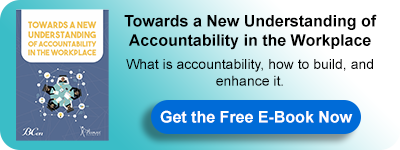Co-Elevation Kickoff: Going Higher Together
This blog is a part of our series: 2020 ATD Virtual Conference Report
(Original presentation by Keith Ferrazzi, summarized by Business Consultants, Inc.)
What is Co-elevation, and Why It is So Important?
”Co-elevation” means how you lead without authority, building a co-elevating relationships with your members at work by collaborating under a mutual agreements of "going higher together". When we chose to co-elevate that will unlock the potential for increasing productivity, deepening commitment and engagement, create a level of trust, and mutual accountability. The commitment to co-elevate creates the psychological safety, which is required for conflict resolutions, candid feedback, and shared accountability. It takes empathy, generosity, and courage to co-elevate, but the benefits are extraordinary.
Here are some tips on how you can lead your team to be "co-elevating", regardless of your title, authority, or stature and reboot the way your team work together:
Vision
To lead without authority, first you need to establish what you want for your organization and for individuals.
Positive Thinking
Everyone must take responsibility for the relationships in their life. Get rid of the negative ways of thinking such as “it’s just not my job” or acting like a victim.
Team
Start with team members who already are trust-able and got your back. For those whom we found difficult to work with, don’t let those people stand in your way; instead invite them into the team.
Co-creation
There must be bold inputs, followed by the group making a bold decisions. We need to be candid with each other. It is important to create safe environment for team members to be open and honest. The communication need to be purposeful.
Grow
You have to make growth as a hallmark of your teams by creating a peer-to-peer network in which the team members support one another to grow and succeed.
As learning and talent development we can support to create such a culture where individuals work fluidly together within networks to grow.
The disruption around us can be debilitating, but the innovation could be extraordinary.
Let's Never Go Back to Work. Let's Go Forward.
References:
- Let's Never Go Back To Work Let's Go Forward 2020 (accessed June 12, 2020, <virtualteamswin.com>)
- Ferrazzi Leadership Program, Where Leadership Meets Co-Elevation® 2020 (accessed June 12, 2020, <learn.keithferrazzi.com>)
- ATD Virtual Conference; Session Listing 2020 (accessed June 12, 2020, <https://virtualconference.td.org/session-listing>)
About speaker:
Keith Ferrazzi is the Chairman and Founder of Ferrazzi Greenlight, a research institute founded on the pillars of behavioral science and its effects on business.
As the author of the NY Times #1 bestseller Who’s Got Your Back and Never Eat Alone, a regular contributor to publications such as Harvard Business Review, Fortune Magazine, The Wall Street Journal, a much sought-after expert guest of television, podcasts and radio, Keith has established himself as the premier thought leader for unlocking powerful networks for productivity and growth— both professional and personal.
As the world's largest conference in the field of human resource development, the annual ATD International Conference and Expo was also been held this year as well. But for the first time in its 76 years' history, the conference was organized virtually because of the COVID-19 pandemic.
Dubbed "ATD Virtual Conference: Building Capabilities and Connection", the conference took place on June 1-5, 2020, with 150+ speakers and more than 4,000 participants from 68 countries.
This series of blogs is a collection of reports by Business Consultants, Inc. from the conference's key sessions, hoping to give you insights on how these days' talent development industry trends and solutions can be incorporated into your practices to help advancing the bottom line of your organization.
